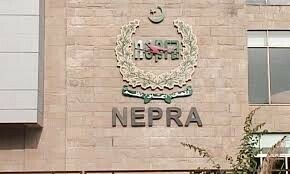The Supreme Court’s constitutional bench on Friday conditionally allowed military courts to pronounce reserved verdicts of 85 civilians who were still in custody for their alleged involvement in last year’s May 9 riots.
The development came as a seven-judge bench resumed hearing a case pertaining to the trial of more than 100 civilians for their alleged role in attacks on army installations during the riots that followed ex-premier Imran Khan’s arrest on May 9, 2023.
The bench — comprising Justice Aminuddin, Justices Jamal Khan Mandokhail, Naeem Akhtar Afghan, Muhammad Ali Mazhar, Hassan Azhar Rizvi, Musarrat Hilali, and Shahid Bilal Hassan — specified that the verdicts of the military courts would be subject to its final decision on the appeals against the Oct 23, 2023 ruling.
Passing directives at the end of today’s hearing, Justice Aminuddin Khan, who is heading the constitutional bench, said, “Suspects who can be accorded concessions in their sentences, should be given so and released.
“Suspects who cannot be released should be moved to jails once their sentence has been pronounced,” he added.
Today’s directives allow military courts to pronounce verdicts, including those already acquitted, in trials that have been pending for more than a year.
The court order, a copy of which is available with Dawn.com, reads: “The final judgment of 85 persons who are under the custody and facing trial before the military courts, be announced and the remissions admissible to the said persons be granted and persons who can be released after remissions they be released forthwith and the persons who have to yet undergo the sentence awarded to them, their custody be handed over to the concerned jail authorities.
“The learned additional attorney general states that they will be dealt with in accordance with the jail manual. The announcement of judgment will be subject to final determination of these appeals and without prejudice to the rights of the said 85 accused persons.”
In case the SC in its final verdict upholds its Oct 23, 2023 ruling, the acquitted persons can legally be tried by an anti-terrorism court or any other relevant court since the military trial and its verdict would be null and void, but could possibly benefit from the constitutional protection against double jeopardy.
In a widely praised ruling last year, a five-member SC bench — comprising Justices Ijazul Ahsan, Munib Akhtar, Yahya Afridi, Syed Mazahar Ali Akbar Naqvi and Ayesha Malik — had unanimously declared that trying the accused civilians in military courts violated the Constitution.
The apex court had declared that the accused would not be tried in military courts but in criminal courts of competent jurisdiction established under the ordinary or special law of the land.
However, on December 13 last year, in a 5-1 majority verdict, the SC conditionally suspended its own Oct 23 ruling — albeit by a different bench — pending a final judgement as it heard a set of intra-court appeals (ICAs).
Earlier in March, a six-member SC bench had also conditionally allowed military courts to pronounce reserved verdicts in the cases. It had also modified its Dec 13 injunction, ordering that military courts could commence trials but they would not convict or acquit any suspect until the pendency of government-instituted ICAs.
Contradictory to today’s order, the bench on Monday had rejected the government’s request to allow military courts to pronounce verdicts in completed trials, with Justice Hilali noting it would imply the court’s acceptance of the military courts’ jurisdiction to try civilians.
In the same hearing, the bench had questioned the rationale behind handing over May 9 cases to military courts, asking whether anti-terrorism courts (ATCs) had issued speaking orders explaining their reasons before doing so.
Yesterday, questions about the legitimacy of civilians’ military trials in light of Article 8 were the highlight of the hearing, with Justice Mandokhail asking how the Pakistan Army Act (PAA) 1952 could be applied to someone who was not part of the army.
Today, Justice Aminuddin noted that the constitutional bench was only hearing the military trials case and adjourned all other cases.
Issuing today’s interim order, Justice Aminuddin said that the right to challenge the military courts’ decisions in high courts would remain suspended till the case in the apex court was decided upon.
“The appeal period in the high courts will begin after the final decision [by the SC],” the bench head observed.
During the hearing, Advocate Khawaja Haris appeared as the defence ministry’s lawyer. Additional Attorney General (AAG) Amir Rehman was present as the state counsel.
The hearing was adjourned until after the court’s winter break, which would end in January.
The hearing
At the outset of the hearing, echoing his remarks from yesterday, Justice Mandokhail sought arguments on whether the PAA sections struck down by the court earlier were in line with the Constitution.
“Can the Army Act be amended to bring every person under its jurisdiction?” he asked.
When Justice Mazhar sought the reasons for striking down the PAA sections, Justice Mandokhail remarked, “This aspect should also be kept in mind that the Army Act was formulated before the 1973 Constitution.”
Here, Haris contended that there were “errors” in the apex court’s original verdict, at which Justice Mandokhil took exception: “Do not dishonour a court decision to this extent by calling it erroneous.”
The defence ministry counsel then apologised, saying his words were “not of a legal nature”.
Justice Mazhar then recalled that the bench had yesterday sought details of the May 9 incidents. “Currently, we only have the Corps Commander House matter before us. Let us know if the case is to be limited only till the Corps Commander House [attack],” he said.
AAG Rehman responded that “all details were received earlier this morning”, adding that he would submit them formally in the form of a miscellaneous application.
Here, Justice Hilali wondered what would happen to the trials held under the PAA sections declared unconstitutional by the SC earlier. “Someone must have been sentenced under them before May 9 [incident],” she added.
Haris replied that usually, verdicts issued before the relevant sections were struck down had protection, at which the judge remarked that it would be akin to“prejudice against those suspects“.
At this point during the hearing, Justice Mandokhail said, “No one joins the army by force, but of their will. Those joining the army know that the Army Act would be applicable to them.
“Under the Army Act, one does not have their fundamental rights. The Army Act was constituted for the rules and discipline of employment in the army,” he added.
The defence ministry lawyer stated, “No one joins the army with the intention of crime. The fundamental rights are revoked upon committing a crime.”
Justice Mandokhail then asked whether the court would be limited to the appellant’s request when hearing an appeal. “Can the court also review other aspects of the decision?”
Justice Aminuddin observed that “respondents could be limited to their objections but not the court”, to which Justice Mandokhail said he wanted to be satisfied since it was a serious matter. ۔ Here, Haris contended that if the Constitution’s Article 83A “did not provide fundamental rights, then it could not be challenged in a military court”.
“The matter under consideration here is not of fundamental rights but of civilians and non-civilians,” Justice Hilali noted. Justice Mandokhail asked whether the counsel did not trust civilian courts while Justice Aminuddin asked him how much more time he needed for his arguments.
Haris replied he would require “some more time” for his arguments, at which Justice Aminuddin said the hearing was being adjourned until the winter break was over.
“It is hoped that the case of military trials will conclude in January. Once this case is decided, we will fix for hearing the petitions against the 26th Amendment for January’s second week,” the judge stated.
“We have a lot of cases in the pipeline, including those on the 26th Amendment.
Subsequently, the bench allowed military courts to announce the reserved verdicts on the condition that they would be subject to the apex court’s final decision on the ICAs. The hearing was adjourned until the first week of January.
Case history
A five-member bench had declared the military trials of 103 civilians null and void as it heard petitions filed by Imran, ex-CJP Khawaja, Aitzaz Ahsan, and Karamat Ali.
Prior to the formation of the constitutional bench under the 26th Amendment, the ICAs were being heard by a six-member bench and then by seven judges after the former sought a larger bench.
Last week, Justice Hassan was appointed as the constitutional bench’s eighth member after it emerged that Justice Ayesha, one of the members of the constitutional bench, had recused herself from hearing the appeals as she was one of the five judges that issued the Oct 23, 2023 verdict.
The appeals against the verdict had been filed by the then-caretaker federal government as well as the provincial ones in Balochistan, Khyber Pakhtunkhwa and Punjab. Sindh had denied filing a purported plea on the same matter and was not included among the petitions taken up earlier.
The defence ministry had also moved an ICA, requesting the apex court to suspend the verdict’s operation during the pendency of the appeal.
In March, KP Additional Advocate General Syed Kauser Ali Shah had submitted a letter expressing the provincial government’s intention to withdraw the appeal against the Oct 23 ruling.
The next month, a list of 20 individuals had also been furnished before the SC, stating that in pursuance to the SC directions on March 28, the military courts were allowed to resume trial and therefore handed down sentences in cases of lesser punishments.
It said 20 persons were awarded sentences of one year of which 17 served a period of 10.5 months and three persons have served a period of 9.5 months.
While none of the persons have served out a full period of one year, upon confirmation of their sentence, the remaining period of their punishment was remitted by the army chief under Section 143(1)(i) of the Pakistan Army Act, 1952 (PAA).
The order said the convictions would be subject to the decisions of the appeals seized with the court.
During the last hearing in July, Justice Mazhar had observed that the government should ensure that the court’s earlier directions regarding the provision of food and family meetings once a week should be complied with.















































